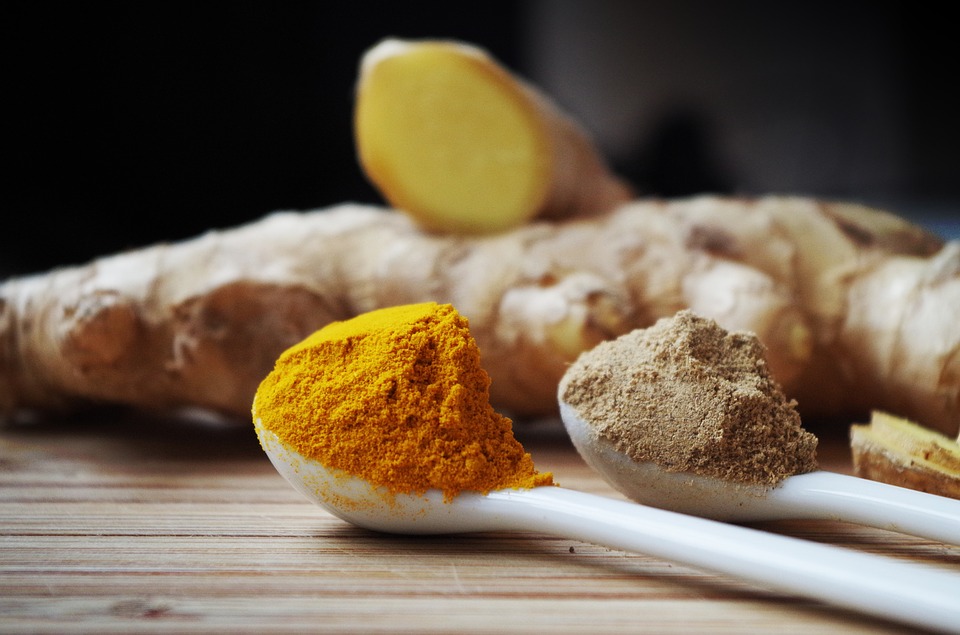Although extensively used in Indian and other Asian cuisines for centuries, western medicine is now recognizing the amazing health benefits of turmeric. Similar in appearance to ginger, this spice and herb grows in root form and gives food a lovely yellow color. While you can grate it and add it to your meals for an added zing and appearance, it is also available in powder form. The root is sun-dried until crisp and then ground to a powder that you can consume in many different ways.
Turmeric Helps Lower Inflammation Levels in the Body
Normal inflammation in the body is its response to invading bacteria and other pathogens and helps fight off infections. But, when the inflammation remains for longer periods, it starts to adversely affect the organs of the body leading to various illnesses. Turmeric contains the active compound called curcumin that fights off inflammation. Here are some of the anti-inflammatory health benefits of turmeric.
- Prevents heart disease and cancer
- Protects against metabolic syndrome that can lead to cardiovascular diseases and Type 2 diabetes if left unchecked
- Reverses the degradation of cartilage and synovial fluids in the joints that leads to arthritis
- Helps lower swelling in the liver because of Hepatitis
- Assists digestion and protects against conditions like Inflammatory Bowel Disease or IBD
Turmeric Acts as a Powerful Antioxidant
One of the most potent health benefits of turmeric includes the ability to fight the free radicals in the body that can cause oxidative stress. In addition, turmeric as an antioxidant can stimulate the body’s defense mechanisms so they can reverse ill effects such as:
- Hypertension or raised blood pressure
- Buildup of plaque in the arteries and hardened vessels
- Inflammation that leads to arthritis
- Asthma
- Infertility
- Conversion of healthy cells into cancerous growths
Turmeric Helps Promote Brain Function by Building Neurons
By adding turmeric to your food regularly, you can not only protect your brain against degeneration, but also promote the development of new neurons or brain cells. The curcumin in turmeric can help the body produce more of the Brain-Derived Neurotrophic Factor (BDNF). This hormone can act as a growth factor that stimulates the production of cells. As a result, it becomes possible to reverse the effects of diseases of the brain. Some of the positives include:
- Reverses and lowers the possibility of contracting mental illnesses
- Helps reverse symptoms of depression and anxiety, and alleviates mood
- Prevents decreased brain function that results from aging
- Improves memory and brain function, is especially good for students
- Assists in the clearing away of the Amyloid plaque that forms in the brain and causes Alzheimer’s (curcumin can cross the brain-blood barrier and prevent the progression of the disease that has no cure to date)
Turmeric Strengthens Your Heart
As mentioned earlier, one of the health benefits of turmeric includes protecting your heart from cardiovascular diseases. These positive effects are possible because curcumin can strengthen the endothelium, a tissue that lines the blood vessels. As a result, it can better prevent the formation of clots and regulate your blood pressure.
Research has also proved that turmeric is as effective as the drug, Atorvastatin that doctors prescribe for the better functioning of the endothelium. It will interest you to know that cardiologists are now experimenting with doses of 4 gms of curcumin each day for patients undergoing open-heart surgery. Curcumin can prevent possible complications from the procedure.
Turmeric is an Excellent Anti-Aging Solution
Given the many health benefits of turmeric, it is obvious that it can help delay aging and promote longer life spans. You can also use topical applications of turmeric as a paste or combined with other ingredients for beautiful, ageless skin. Acne, zits, and breakouts also respond very well to turmeric applications.
Given the immense health benefits of turmeric, include the herb in your daily diet as a food ingredient or supplements. Check with your doctor for information about the best way to take the spice.
